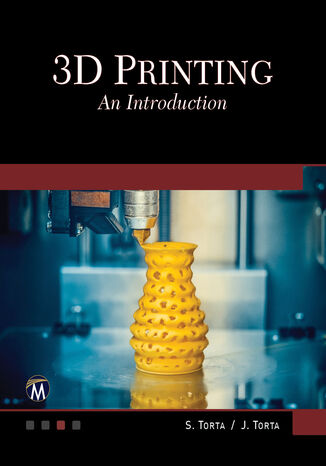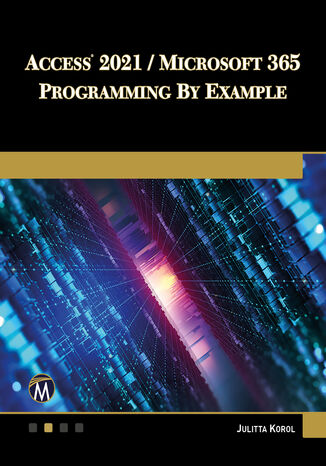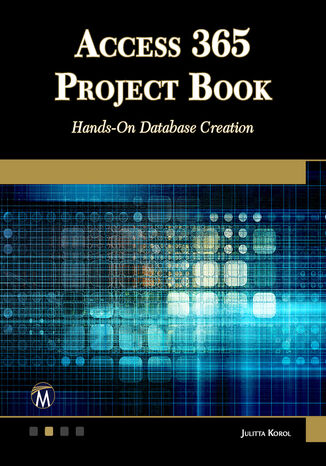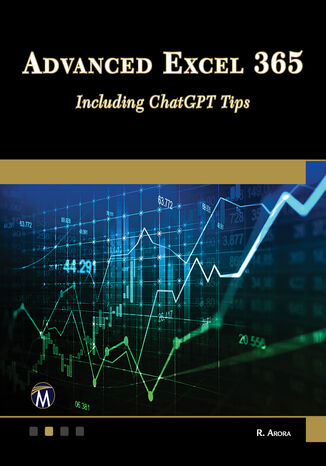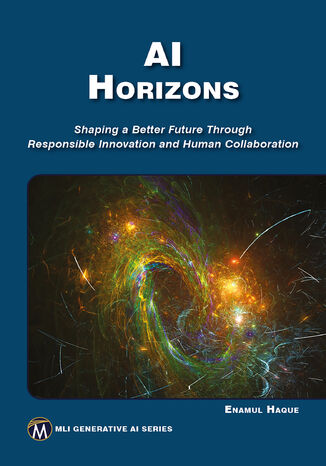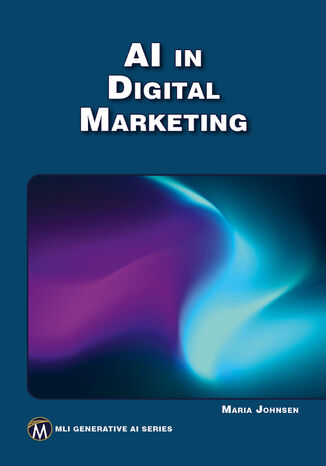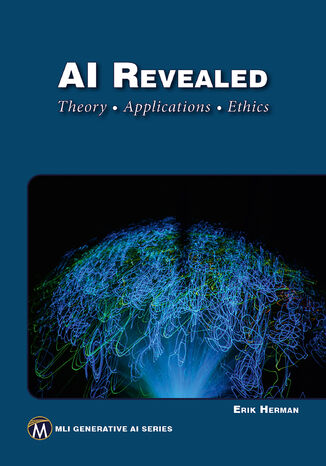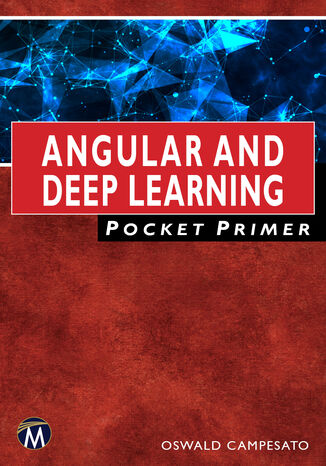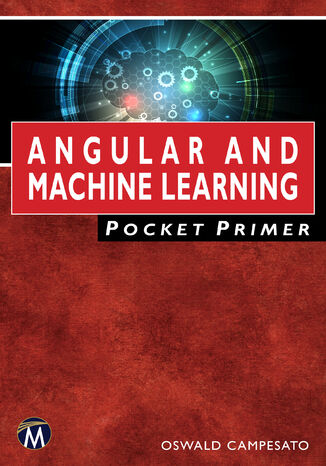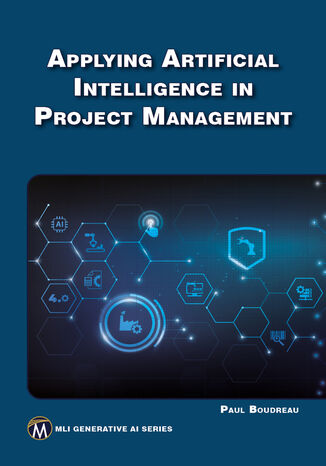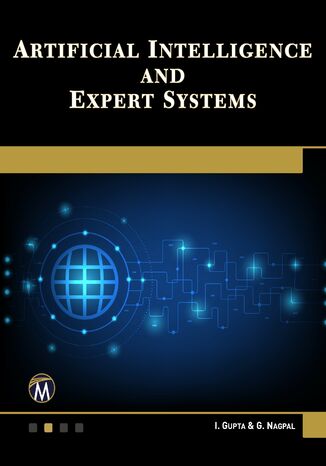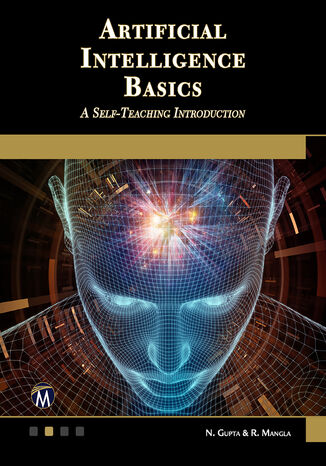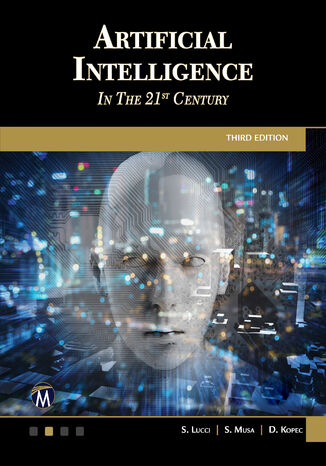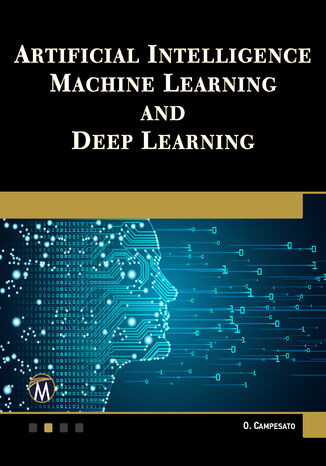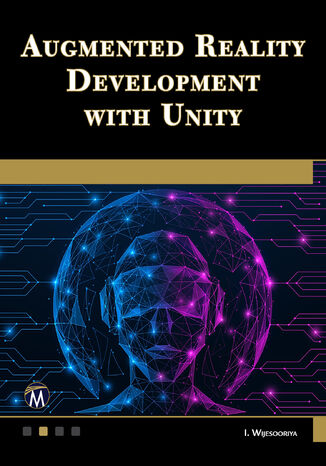Kategorien
-
- Bitcoin
- Geschäftsfrau
- Coaching
- Controlling
- E-Business
- Ökonomie
- Finanzen
- Börse und Investitionen
- Persönliche Kompetenzen
- Computer im Büro
- Kommunikation und Verhandlungen
- Kleines Unternehmen
- Marketing
- Motivation
- Multimedia-Training
- Immobilien
- Überzeugung und NLP
- Steuern
- Sozialpolitik
- Handbȕcher
- Präsentationen
- Führung
- Public Relation
- Berichte, Analysen
- Geheimnis
- Social Media
- Verkauf
- Start-up
- Ihre Karriere
- Management
- Projektmanagement
- Personal (HR)
-
- Architektura i wnętrza
- Sicherheit und Gesundheit am Arbeitsplatz
- Biznes i Ekonomia
- Haus und Garten
- E-Business
- Ekonomia i finanse
- Esoterik
- Finanzen
- Persönliche Finanzen
- Unternehmen
- Fotografie
- Informatik
- HR und Gehaltsabrechnung
- Frauen
- Computer, Excel
- Buchhaltung
- Kultur und Literatur
- Wissenschaftlich und akademisch
- Umweltschutz
- meinungsbildend
- Bildung
- Steuern
- Reisen
- Psychologie
- Religion
- Landwirtschaft
- Buch- und Pressemarkt
- Transport und Spedition
- Gesundheit und Schönheit
-
- Office-Programme
- Datenbank
- Bioinformatik
- IT Branche
- CAD/CAM
- Digital Lifestyle
- DTP
- Elektronik
- Digitale Fotografie
- Computergrafik
- Spiele
- Hacking
- Hardware
- IT w ekonomii
- Wissenschaftliche Pakete
- Schulbücher
- Computergrundlagen
- Programmierung
- Mobile-Programmierung
- Internet-Server
- Computernetzwerke
- Start-up
- Betriebssysteme
- Künstliche Inteligenz
- Technik für Kinder
- Webmaster
-
- Anthologien
- Ballade
- Biografien und Autobiografien
- Für Erwachsene
- Drama
- Tagebücher, Memoiren, Briefe
- Epos
- Essay
- Science Fiction
- Felietonys
- Fiktion
- Humor, Satire
- Andere
- Klassisch
- Krimi
- Sachbücher
- Belletristik
- Mity i legendy
- Nobelpreisträger
- Kurzgeschichten
- Gesellschaftlich
- Okultyzm i magia
- Erzählung
- Erinnerungen
- Reisen
- Gedicht
- Poesie
- Politik
- Populärwissenschaftlich
- Roman
- Historischer Roman
- Prosa
- Abenteuer
- Journalismus
- Reportage
- Romans i literatura obyczajowa
- Sensation
- Thriller, Horror
- Interviews und Erinnerungen
-
- Archäologie
- Bibliotekoznawstwo
- Filmwissenschaft
- Philologie
- Polnische Philologie
- Philosophie
- Finanse i bankowość
- Erdkunde
- Wirtschaft
- Handel. Weltwirtschaft
- Geschichte und Archäologie
- Kunst- und Architekturgeschichte
- Kulturwissenschaft
- Linguistik
- Literaturwissenschaft
- Logistik
- Mathematik
- Medizin
- Geisteswissenschaften
- Pädagogik
- Lehrmittel
- Populärwissenschaftlich
- Andere
- Psychologie
- Soziologie
- Theatrologie
- Teologie
- Theorien und Wirtschaftswissenschaften
- Transport i spedycja
- Sportunterricht
- Zarządzanie i marketing
-
- Sicherheit und Gesundheit am Arbeitsplatz
- Geschichte
- Verkehrsregeln. Führerschein
- Rechtswissenschaften
- Gesundheitswesen
- Allgemeines. Wissenskompendium
- akademische Bücher
- Andere
- Bau- und Wohnungsrecht
- Zivilrecht
- Finanzrecht
- Wirtschaftsrecht
- Wirtschafts- und Handelsrecht
- Strafrecht
- Strafrecht. Kriminelle Taten. Kriminologie
- Internationales Recht
- Internationales und ausländisches Recht
- Gesundheitsschutzgesetz
- Bildungsrecht
- Steuerrecht
- Arbeits- und Sozialversicherungsrecht
- Öffentliches, Verfassungs- und Verwaltungsrecht
- Familien- und Vormundschaftsrecht
- Agrarrecht
- Sozialrecht, Arbeitsrecht
- EU-Recht
- Industrie
- Agrar- und Umweltschutz
- Wörterbücher und Enzyklopädien
- Öffentliche Auftragsvergabe
- Management
-
- Afrika
- Alben
- Südamerika
- Mittel- und Nordamerika
- Australien, Neuseeland, Ozeanien
- Österreich
- Asien
- Balkan
- Naher Osten
- Bulgarien
- China
- Kroatien
- Tschechische Republik
- Dänemark
- Ägypten
- Estland
- Europa
- Frankreich
- Berge
- Griechenland
- Spanien
- Niederlande
- Island
- Litauen
- Lettland
- Mapy, Plany miast, Atlasy
- Miniführer
- Deutschland
- Norwegen
- Aktive Reisen
- Polen
- Portugal
- Andere
- Przewodniki po hotelach i restauracjach
- Russland
- Rumänien
- Slowakei
- Slowenien
- Schweiz
- Schweden
- Welt
- Türkei
- Ukraine
- Ungarn
- Großbritannien
- Italien
-
- Lebensphilosophien
- Kompetencje psychospołeczne
- zwischenmenschliche Kommunikation
- Mindfulness
- Allgemeines
- Überzeugung und NLP
- Akademische Psychologie
- Psychologie von Seele und Geist
- Arbeitspsychologie
- Relacje i związki
- Elternschafts- und Kinderpsychologie
- Problemlösung
- Intellektuelle Entwicklung
- Geheimnis
- Sexualität
- Verführung
- Aussehen ind Image
- Lebensphilosophien
-
- Bitcoin
- Geschäftsfrau
- Coaching
- Controlling
- E-Business
- Ökonomie
- Finanzen
- Börse und Investitionen
- Persönliche Kompetenzen
- Kommunikation und Verhandlungen
- Kleines Unternehmen
- Marketing
- Motivation
- Immobilien
- Überzeugung und NLP
- Steuern
- Sozialpolitik
- Handbȕcher
- Präsentationen
- Führung
- Public Relation
- Geheimnis
- Social Media
- Verkauf
- Start-up
- Ihre Karriere
- Management
- Projektmanagement
- Personal (HR)
-
- Anthologien
- Ballade
- Biografien und Autobiografien
- Für Erwachsene
- Drama
- Tagebücher, Memoiren, Briefe
- Epos
- Essay
- Science Fiction
- Felietonys
- Fiktion
- Humor, Satire
- Andere
- Klassisch
- Krimi
- Sachbücher
- Belletristik
- Mity i legendy
- Nobelpreisträger
- Kurzgeschichten
- Gesellschaftlich
- Okultyzm i magia
- Erzählung
- Erinnerungen
- Reisen
- Poesie
- Politik
- Populärwissenschaftlich
- Roman
- Historischer Roman
- Prosa
- Abenteuer
- Journalismus
- Reportage
- Romans i literatura obyczajowa
- Sensation
- Thriller, Horror
- Interviews und Erinnerungen
-
- Archäologie
- Philosophie
- Wirtschaft
- Handel. Weltwirtschaft
- Geschichte und Archäologie
- Kunst- und Architekturgeschichte
- Kulturwissenschaft
- Literaturwissenschaft
- Mathematik
- Medizin
- Geisteswissenschaften
- Pädagogik
- Lehrmittel
- Populärwissenschaftlich
- Andere
- Psychologie
- Soziologie
- Teologie
- Zarządzanie i marketing
-
- Lebensphilosophien
- zwischenmenschliche Kommunikation
- Mindfulness
- Allgemeines
- Überzeugung und NLP
- Akademische Psychologie
- Psychologie von Seele und Geist
- Arbeitspsychologie
- Relacje i związki
- Elternschafts- und Kinderpsychologie
- Problemlösung
- Intellektuelle Entwicklung
- Geheimnis
- Sexualität
- Verführung
- Aussehen ind Image
- Lebensphilosophien
3D Printing. The Complete Guide to Mastering 3D Printing Techniques
Mercury Learning and Information, Stephanie Torta, Jonathan Torta
This book offers a comprehensive introduction to the field of 3D printing, covering its applications in industry, education, and the DIY community. It delves into common 3D printers, materials, and software, guiding you through setting up your own printer and performing essential calibration tasks. Through full-color images, you’ll learn about various printing methods, best practices, and how to finish your projects successfully.The book is divided into three parts: the first part provides a history and evolution of 3D printers, highlighting their industrial and personal use. The second part walks you through setting up a 3D printer, from initial hardware calibration to software functionalities and acquiring 3D objects. You’ll also find step-by-step guides for three different projects.The final part helps you choose the right printer, explains common features, and explores post-market modifications. Understanding 3D printing is crucial as it revolutionizes manufacturing and prototyping processes, enabling creativity and innovation in various fields. This book ensures a smooth journey from a novice to a confident 3D printing enthusiast, equipped with practical skills and knowledge. Companion files with videos, printable objects, and additional lessons enhance your learning experience.
Access 2021 / Microsoft 365 Programming by Example. Mastering VBA for Data Management and Automation
Mercury Learning and Information, Julitta Korol
Updated for Access 2021 and based on bestselling editions, this book is a practical guide on Access programming, perfect for users proficient with the Access UI. It introduces programming concepts through illustrated hands-on exercises and custom projects. You will learn to write and test code with the Visual Basic Editor, use VBA structures like conditions, loops, arrays, collections, and dictionaries, and reprogram database characteristics.The book covers building database solutions with Data Access Objects (DAO) and ActiveX Data Objects (ADO), defining database objects, and managing database security with SQL. It explores enhancing user interaction with Ribbon customizations and event programming in forms and reports. Additionally, you'll learn to use Access with XML and REST API.From getting started with Access VBA to advanced event programming and macros, this book ensures a comprehensive understanding of Access programming. It transitions readers from basic to advanced topics, equipping them with the knowledge and tools to automate Access routine tasks effectively.
Access 365 Project Book. Hands-On Database Creation
Mercury Learning and Information, Julitta Korol
This book is a practical introduction to building and managing Access desktop databases. Instead of merely explaining Microsoft Access, it helps you complete tasks related to creating, using, and managing a database. The hands-on approach focuses on creating a traditional Access desktop database and emphasizes splitting the database for optimized multi-user access. The primary project, the Employee Training Database (ETD), offers practical, real-world experience.The book guides you through database creation and management. It starts with planning and designing a database, followed by creating and setting up Access tables. It then covers primary keys, indexes, and table relationships, and populating tables with data. The middle sections include working with queries and designing and customizing forms.The latter part focuses on designing and using reports and customizing them. It concludes with compacting, splitting, and securing the database for optimized performance and security. These concepts enable efficient database management and enhance multi-user collaboration. This book transitions you from a novice to a proficient user, equipped with practical skills and comprehensive knowledge. Companion files with hands-on examples enrich your learning.
Adobe InDesign. Creative Class for Beginners
Mercury Learning and Information, Lauren Saalmuller, Stephanie Torta
This book explores digital design, tailored for beginners eager to master Adobe InDesign, and serves as a valuable resource for experienced users refining their skills. It demystifies Adobe InDesign, defining essential tools through engaging projects and tutorials. Starting with navigating the interface, it lays a solid foundation by teaching how to open and create documents, understand the workspace, and tailor the program to individual needs.The book offers practical experience with projects such as web banners, social media ads, logos, flyers, posters, covers, newsletters, and booklets. Each project builds on the previous one, ensuring a comprehensive understanding of InDesign's capabilities. A complete “Save the Sharks” marketing campaign allows users to apply their skills in a real-world context, with options to customize content for personal campaigns.Understanding Adobe InDesign is crucial for creating professional-quality designs. This book transitions users from novices to confident designers, equipped with practical skills and comprehensive knowledge. It ensures a smooth learning journey, enhancing creative potential and proficiency in digital design. Companion files with video tutorials and project files enrich the learning experience, making it an essential resource for all levels.
Advanced Excel 365. Master Excel 365 with practical tips and advanced AI integrations
Mercury Learning and Information, Ritu Arora
Excel is more than a spreadsheet—it's a powerhouse for data analysis, decision-making, and business productivity. This course begins with foundational concepts, such as cell referencing, formulas, and functions, before moving into tools like data validation, pivot tables, and conditional formatting. You'll also explore advanced techniques for working across multiple worksheets and creating impactful charts.The journey continues with in-depth coverage of VBA programming, where you'll learn to automate repetitive tasks, debug errors, and create user-friendly applications. Starting with the basics of macros and variables, you'll advance to building custom add-ins and employing sophisticated VBA techniques to handle complex data processes seamlessly. Each lesson combines practical examples with actionable insights.By the end of the course, you'll possess a versatile toolkit to handle everything from daily spreadsheet tasks to creating powerful custom solutions. Whether you're preparing reports, analyzing trends, or developing VBA-driven applications, this course equips you to work smarter and achieve more.
AI Horizons. Shaping a Better Future Through Responsible Innovation and Human Collaboration
Mercury Learning and Information, Enamul Haque
As artificial intelligence continues to reshape industries and societies, understanding its broader implications is crucial. AI Horizons offers an in-depth exploration of the ethical challenges and social consequences associated with AI, such as privacy, bias, and the digital divide. The book underscores the importance of transparency, fairness, and accountability, stressing the need for a responsible approach to AI development.The book further examines how AI is being adopted across various sectors, including healthcare, education, and finance, providing real-world case studies that highlight its transformative power. However, it also considers the unique challenges emerging markets face and the potential of AI to address critical global issues like poverty and climate change.AI Horizons advocates for a collaborative partnership between humans and AI, promoting human-centric design and governance frameworks to ensure that AI enhances human intelligence rather than replacing it. Through a balanced approach, the book calls for informed dialogue, public literacy in AI, and robust policies to guide AI's development responsibly and equitably.
AI in Digital Marketing. Harnessing AI tools to revolutionize digital marketing strategies
Mercury Learning and Information, Maria Johnsen
Artificial Intelligence is transforming the digital marketing landscape, offering innovative solutions for personalization, automation, and efficiency. This comprehensive guide explores AI's impact on digital marketing, focusing on data-driven insights, predictive analytics, and customer engagement strategies. It empowers marketers to understand and leverage AI's potential in crafting targeted campaigns and optimizing workflows.Readers will explore essential topics like machine learning, natural language processing, and sentiment analysis, all tailored for marketing applications. Practical insights on SEO, content creation, and social media listening are combined with advanced concepts such as programmatic advertising, AI-powered customer support, and marketing automation. The book ensures a balance between foundational knowledge and actionable strategies.This resource equips digital marketers, strategists, and analysts to adopt emerging trends, drive measurable results, and maintain a competitive edge in the AI-driven marketing ecosystem. It is the perfect companion for professionals seeking to enhance their skills and harness the power of AI in their digital marketing efforts.
A.I. Revealed. Exploring AI foundations, advanced applications, and ethical considerations
Mercury Learning and Information, Erik Herman
Unlock the transformative power of artificial intelligence in this comprehensive journey through its foundational principles and practical applications. Start by grasping the essentials of AI and machine learning, progressing to advanced topics like deep learning, neural networks, and cutting-edge applications in natural language processing and computer vision. Each concept is delivered with real-world relevance, ensuring a clear understanding of the theory and its implementation.Dive deeper into the ethical dimensions of AI, exploring critical issues such as bias and fairness. Gain insights into how AI is revolutionizing industries through case studies, bridging the gap between theoretical knowledge and practical application. The course culminates with an exploration of emerging technologies and the future of AI, equipping you with foresight into its transformative potential.Whether you're taking your first steps in AI development or seeking to enhance your existing skills, this course offers a structured pathway to mastery. With hands-on guidance, you'll develop a robust foundation and confidence to contribute meaningfully in the rapidly evolving field of artificial intelligence.
Mercury Learning and Information, Oswald Campesato
As part of the Pocket Primer series, this book introduces basic deep learning concepts and integrates them into Angular 10 applications. It offers a fast-paced introduction to deep learning features and popular classifiers. Covering Angular 10 functionality, deep learning concepts, and key classification algorithms, the book includes code samples and figures. Topics such as TensorFlow and Keras are also explored.The book begins with an introduction to AI and its applications, followed by state space search and heuristic search strategies. You will delve into expert systems, their development life cycle, knowledge acquisition, and representation. These topics lead to a deeper understanding of neural networks, the learning process, and fuzzy logic systems, ensuring a comprehensive grasp of AI and deep learning principles.Understanding these concepts is essential for developing sophisticated AI applications and enhancing Angular 10 projects. This book transitions you from a novice to a proficient developer, equipped with practical skills and knowledge. Advanced topics like fuzzy expert systems and logic programming are covered, culminating in advanced Prolog. Companion files with source code and color figures enhance the learning experience, making this book an invaluable resource for integrating deep learning with Angular 10.
Mercury Learning and Information, Oswald Campesato
As part of the best-selling *Pocket Primer* series, this book introduces readers to basic machine learning concepts and integrates them into Angular applications. It offers a fast-paced introduction to essential machine learning features and an overview of popular classifiers. Covering Angular functionality, basic machine learning concepts, and key classification algorithms, the book includes numerous code samples and figures. Topics such as TensorFlow and Keras are also explored.The book begins with a quick introduction to Angular, followed by UI controls, user input, and forms and services. As you progress, you will delve into machine learning, working with classifiers, and integrating TensorFlow.js with Angular. These foundational topics ensure a comprehensive grasp of both Angular and machine learning principles, equipping you with practical skills for developing sophisticated applications.Understanding these concepts is crucial for enhancing Angular projects with machine learning capabilities. This book transitions you from a novice to a proficient developer, equipped with the knowledge and tools needed to create advanced applications. Companion files with source code and color figures enhance the learning experience, making this book an invaluable resource for integrating machine learning with Angular.
Mercury Learning and Information, Paul Boudreau
Artificial intelligence is reshaping the way projects are managed, offering unprecedented opportunities to improve efficiency, accuracy, and outcomes. This course begins with an introduction to AI’s role in project management, exploring how machine learning, natural language processing, and predictive algorithms can transform traditional approaches. You’ll learn about the key components of AI-driven projects and how to develop a strong business case for adopting these innovations.As you progress, the course delves into practical applications of AI in automating project tasks, analyzing data, and predicting results. Participants will gain hands-on experience with tools that leverage machine learning to forecast project success, improve productivity, and resolve potential failures. Additionally, you’ll discover how generative AI and large language models can enhance communication, planning, and decision-making throughout the project lifecycle.Finally, the course examines the broader implications of integrating AI into project management. You’ll explore strategies for acquiring AI solutions, implementing them within teams, and navigating the ethical challenges they present. By the end of the course, participants will have a clear understanding of how to leverage AI to optimize projects and stay competitive in a rapidly evolving technological landscape.
Artificial Intelligence and Expert Systems. Techniques and Applications for Problem Solving
Mercury Learning and Information, I. Gupta, G. Nagpal
This book covers current AI applications and techniques for solving problems and accomplishing tasks. It introduces branches of AI such as formal logic, reasoning, knowledge engineering, expert systems, neural networks, and fuzzy logic. It emphasizes expert systems, with sections on state space search, knowledge engineering, neural networks, fuzzy logic, and Prolog.It begins with an introduction to AI and its applications, setting the stage for foundational concepts. Readers are guided through state space search and heuristic search strategies, crucial for problem-solving in AI. The focus shifts to expert systems, covering their development life cycle, knowledge acquisition, and representation, providing a deep dive into emulating human decision-making.Later chapters cover neural networks and the learning process, essential for creating adaptive systems. Sections on fuzzy logic and fuzzy systems introduce methods for handling uncertainty in AI. Final chapters on programming in logic and advanced Prolog offer practical techniques for AI solutions. This approach equips readers with the skills to apply AI in various domains, enhancing their problem-solving abilities and understanding of intelligent systems.
Artificial Intelligence Basics. A Self-Teaching Introduction
Mercury Learning and Information, N. Gupta, R. Mangla
This book is designed as a self-teaching introduction to the fundamental concepts of artificial intelligence (AI). It begins with the history of AI, the Turing test, and early applications, providing a strong foundation. Later chapters cover the basics of searching, game playing, and knowledge representation. The journey continues with detailed explorations of expert systems and machine learning, equipping readers with essential AI techniques.As the course progresses, you will delve into separate programming chapters on Prolog and Python, learning how to implement AI concepts in these languages. These chapters offer practical coding experience, enhancing your understanding of AI programming. The book culminates with a comprehensive chapter on AI machines and robotics, showcasing numerous modern applications and providing a glimpse into the future of AI technology.Understanding these AI concepts is crucial as they form the basis of many modern technologies and applications. This book ensures a smooth transition from a beginner to a proficient AI practitioner, equipped with both theoretical knowledge and practical skills. By the end of the book, you will have a thorough understanding of AI's history, core principles, and practical implementations, ready to apply this knowledge to real-world problems and projects.
Artificial Intelligence in the 21st Century. The Future of Technology and Human Innovation
Mercury Learning and Information, Stephen Lucci, Sarhan M. Musa, Danny Kopec
This third edition provides a comprehensive, accessible presentation of AI, including examples, applications, full-color images, and human interest boxes. New chapters on deep learning, AI security, and AI programming keep the content cutting-edge. Topics like neural networks, genetic algorithms, natural language processing, planning, and complex board games are covered.The course starts with an AI overview, moving through uninformed search, intelligent search methods, and game-based strategies. It delves into logic in AI, knowledge representation, production systems, uncertainty in AI, and expert systems. Middle chapters cover machine learning, neural networks, and deep learning. It continues with nature-inspired search methods, natural language processing, and automated planning, ending with robotics and advanced computer games.These AI concepts are crucial for developing sophisticated AI applications. This book transitions you from novice to proficient AI practitioner, equipped with practical skills and comprehensive knowledge. Companion files with resources, simulations, and figures enhance learning. By the end, you'll understand AI principles and applications, ready to tackle real-world challenges.
Mercury Learning and Information, Oswald Campesato
This book introduces AI, then explores machine learning, deep learning, natural language processing (NLP), and reinforcement learning. Readers learn about classifiers like logistic regression, k-NN, decision trees, random forests, and SVMs. It delves into deep learning architectures such as CNNs, RNNs, LSTMs, and autoencoders, with Keras-based code samples supplementing the theory.Starting with a foundational AI overview, the course progresses into machine learning, explaining classifiers and their applications. It continues with deep learning, focusing on architectures like CNNs and RNNs. Advanced topics include LSTMs and autoencoders, essential for modern AI. The book also covers NLP and reinforcement learning, emphasizing their importance.Understanding these concepts is vital for developing advanced AI systems. This book transitions you from beginner to proficient AI practitioner, combining theoretical knowledge and practical skills. Appendices on Keras, TensorFlow 2, and Pandas enrich the learning experience. By the end, readers will understand AI principles and be ready to apply them in real-world scenarios.
Mercury Learning and Information, Indika Wijesooriya
This book provides a comprehensive guide to developing augmented reality applications. Starting with an introduction to AR concepts, it explores key tools and platforms, emphasizing Unity as a core development tool. Readers will gain hands-on experience creating marker-based and marker-less AR apps using Vuforia, ARKit, and ARCore.The book takes a practical approach, covering the creation of custom components, C# programming for Unity, and building mobile AR apps. Advanced topics include world-scale AR with Niantic Lightship and optimization strategies for AR app performance. Each chapter builds skills progressively, ensuring a thorough understanding of the subject.By the end, readers will have the confidence and skills to design and develop innovative AR applications, understanding the best practices and challenges of AR app development.

